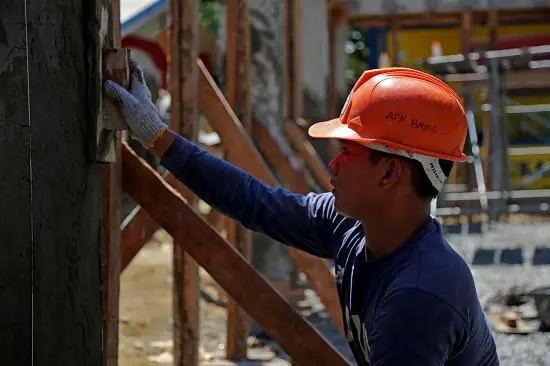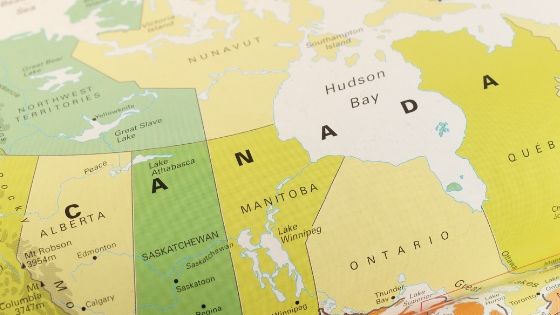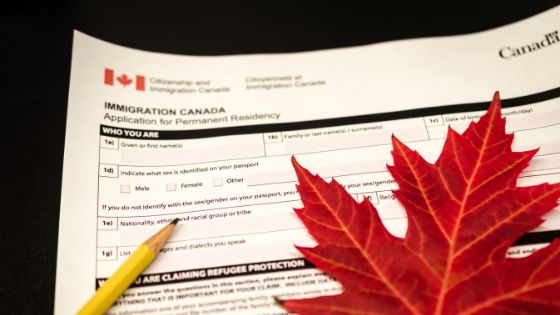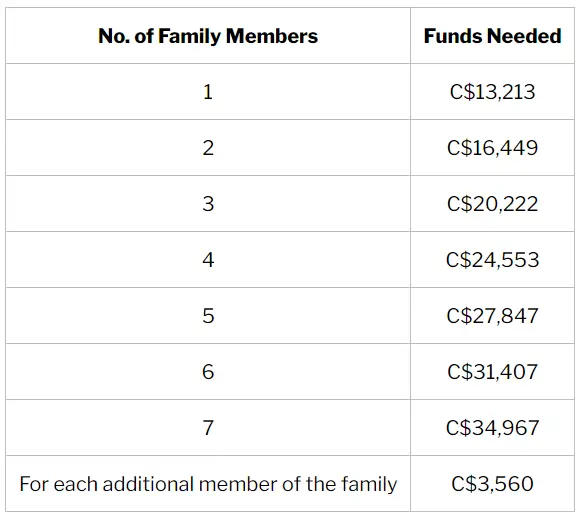How To Immigrate to Canada From Philippines
Most Filipinos dream of a better life. Canada, a country that’s very accommodating and friendly towards immigrants, has become a popular destination for Filipino immigrants in the last few decades. 837,130 Filipinos now live in Canada as of 20165.
Of course, much of the allure of Canada comes from its high quality of living. Citizens, as well as immigrants, get to enjoy a lot of benefits that can help improve their daily lives. With Canada hoping to welcome hundreds of thousands of permanent residents in the coming years, this could also become your new life.
Before getting started on the long and possibly complicated process of immigrating to Canada, there are several factors that you should consider, many decisions to make, and a lot of research to do. Let this article be your guide.
Related: How to Get a Job in Canada: A Filipino’s Ultimate Job-Hunting Guide
Table of Contents
What Are the Different Pathways for Immigrating to Canada?
1. Express Entry

Express Entry is a program to choose the best-skilled workers based on their skills, experience, and potential to contribute to Canada’s economy. This online program is in charge of managing permanent residence applications from skilled workers.
Applicants can enter the Express Entry pool through the Federal Skilled Worker (FSW) Program, Federal Skilled Trades Program (FSTP), and the Canadian Experience Class.
Here’s the application procedure for the Express Entry system:
- Assess your qualifications and determine if you can apply under any of the three programs. You can also take the online test to verify your eligibility.
- Prepare all the documents you need to prove that you meet your chosen program’s requirements.
- Create your Express Entry profile. This program uses a point system, and you’ll be ranked in the pool based on your score from your qualifications.
Applicants with the highest scores will be invited to apply for permanent residence. Once you receive an invitation to apply, you’ll be given 60 days to submit your application for permanent residence.
Complete applications will be processed within six months.
The following are the three programs available under Express Entry:
a. Federal Skilled Trades Program
The Federal Skilled Trades Program6 applies to the following job categories:
- Major Group 72, technical trades and transportation officers and controllers (except Sub-Major Group 726, transportation officers and controllers)
- Major Group 73, general trades
- Major Group 82, supervisors in natural resources, agriculture, and related production
- Major Group 83, occupations in natural resources and related production
- Major Group 92, processing, manufacturing, and utility supervisors, and utility operators and controllers
- Major Group 93, central control and process operators and aircraft assembly assemblers and inspectors (except Sub-Major Group 932, aircraft assemblers and aircraft assembly inspectors)
- Minor Group 6320, cooks, butchers, and bakers
- Unit Group 62200, chefs
You must meet the following minimum requirements to be eligible to apply under the Federal Skilled Trades Program:
- With at least two years of relevant work experience within the last five years
- Must meet the job requirements for the chosen skilled trade
- With a valid job offer for at least one year or a Certificate of Qualification in the chosen skilled trade issued by a Canadian authority
- No education requirement, but you can improve your Express Entry score if you have one
- Valid language test with scores of at least CLB (Canadian Language Benchmark) 5 for speaking and listening and at least CLB 4 for reading and writing
- Proof of Funds (only if you don’t have a valid working permit or a legitimate job offer for at least one year)
- Admissible to Canada
- No plans of living or working in Quebec
b. Federal Skilled Worker Program
The Federal Skilled Worker Program7 applies to the following job categories:
- TEER 0 or management occupations (e.g., advertising, marketing, and public relations managers)
- TEER 1 or occupations that usually require a university degree (e.g., financial advisors, software engineers)
- TEER 2 or occupations that usually require a college diploma and apprenticeship training of two or more years/supervisory occupations (e.g., medical laboratory technologists)
- TEER 3 or occupations that usually require a college diploma and apprenticeship training of fewer than two years/on-the-job training of more than six months (e.g., bakers and dental assistants)
You must meet the following minimum requirements to be eligible to apply under the Federal Skilled Worker Program:
- With at least one year of paid and relevant work experience within the last ten years
- Valid language test with scores of at least CLB 7 in all four skills
- Education equivalent to at least a diploma from a Canadian high school or post-secondary school
- Admissible to Canada
- No plans of living or working in Quebec
- Proof of Funds (only if you don’t have a valid working permit or a legitimate job offer for at least one year)
c. Canadian Experience Class
The Canadian Experience Class8 program is for skilled workers in Canada who want to become permanent residents.
You must meet the following minimum requirements to be eligible to apply under the Canadian Experience Class:
- With at least one year of skilled work experience in Canada, which means jobs under the following categories: TEER 0, 1, 2, or 3
- With work experience legally obtained in Canada
- No education requirement, but you can improve your Express Entry score if you have one
- Valid language tests with scores of at least CLB 5 for TEER 2 or TEER 3 jobs and CLB 7 for TEER 0 or TEER 1 jobs
- Admissible to Canada
- No plans of living in Quebec
2. Study Permit

This program is for students who wish to study in Canada. Applicants from the Philippines can apply online through the Student Direct Stream for an easier and faster process.
To be eligible for a study permit through the Student Direct Stream, you must meet the following requirements:
- Must be a citizen of China, India, Pakistan, Philippines, Vietnam, or other eligible countries
- Must not be in Canada when you apply
- With an acceptance letter from a post-secondary learning institution in Canada
- Proof of payment for the first year of study
- Must have passed the required medical exam
- Must have obtained a police certificate
- With a Guaranteed Investment Certificate (GIC) of C$10,000
- If studying in Quebec, you must have a Certificat d’acceptation du Québec (CAQ) from the Ministère de l’Immigration, de la Francisation et de l’Intégration
- Latest transcripts
- A language test result of at least 6.0 in all four skills on the IELTS (International English Language Testing System) or a Test d’évaluation de français (TEF) score of at least a CLB 7.0 in all four skills
This program has an application fee of C$150 and a biometrics fee of C$85 per person.
Study permits are processed within 20 calendar days. You must have your credit card as you complete the online application. To apply, complete the online form, use a scanner or camera to create e-copies of your documents, and pay the application and biometrics fees online using your debit or credit card.
3. Refugee Status
This program is designed for people staying in Canada who want to claim refugee protection. Refugee protection applies to people unwilling or unable to return to their home country for several reasons.
There are two categories of applicants under this program: convention refugees and persons needing protection.
Convention refugees are outside their home country and won’t be able to return due to fear of persecution based on one of the following reasons: membership in a social group, nationality, political opinion, race, or religion.
A person in need of protection is someone who can’t return to his home country safely due to the possibility of facing any of the following: danger of torture, a risk to their life, or risk of punishment or cruel, unusual treatment.
You have two ways to apply. You can either apply at a port of entry or an IRCC office. Then, you have to download the application package, which you must fill out with your background, family, and why you want refugee protection.
After filling out the forms and gathering the needed documents, you can submit your application in person at an IRCC office or port of entry. It must be noted that no fees will be collected under this program.
Once your eligibility for refugee protection is confirmed, you’ll be invited to a hearing at the IRCC.
4. Start-up Visa

This program is for highly-skilled entrepreneurs who have enormous potential to create businesses in Canada. The possible businesses should be innovative, globally competitive, and can create a lot of jobs for Canadians.
To be eligible for this program, you must meet the language requirements of at least CLB (Canadian Language Benchmark) 5 in either French or English in the following areas: listening, reading, speaking, and writing.
You must have a qualifying business and get a recommendation letter from any designated organizations in charge of approving business ideas. You also have to bring enough funds for you and your family members.
This program has a visa application fee of C$2,1409 and takes around 36 months to process. To apply, you must download the application package for the Start-up Visa from Canada’s immigration website.
After completing the form and ensuring you have all the needed documents, you must pay the application and biometrics fees and then submit your application.
5. Caregiver Program

Canada has new programs for immigrants who want to apply as caregivers: the Home Child Care Provider Pilot and Home Support Worker Pilot.
Through these pilots, you’ll be given an open work permit and a chance to bring your family to Canada. It’s also a direct pathway to permanent residence status in the country.
To be eligible for this program, you must meet the following requirements:
- Must be admissible to Canada
- A language test score of at least Canadian Language Benchmark 5
- Must have completed one year of Canadian post-secondary education (or its foreign equivalent, to be assessed through ECA or Educational Credential Assessment)
You can follow the standard procedure for applying for work permits in Canada. You have to make sure to indicate the pilot program you’re applying for.
First, you should have a valid job offer from a legitimate employer. Next, fill out the application form online at Canada’s immigration website.
Fill out the form and gather the required documents. Pay the application fee and provide your biometrics. Once you have provided all the needed information, documents, and biometrics, you can submit your application.
6. Self-employed Category

This program is for self-employed persons with relevant experience in athletics and cultural activities. These are some occupations that fall under the cultural activities category:
- Authors and Writers
- Creative designers
- Creative and Performing Artists
- Craftspeople
- Musicians
- Painters
- Sculptors
- Technical Support and other related jobs in motion pictures
- Visual Artists
You must have two years of relevant work experience to qualify for this program. You must also get at least 35 points on the selection grid to determine if you’ll contribute economically to the country.
You must also show that you intend to be self-employed while living in Canada.
This program has an application fee of C$2,14010, and the processing time is around 22 months. To apply, you must download the application package for the Self-employed program from Canada’s immigration website.
After completing the form and ensuring you have all the needed documents, you must pay the application and biometrics fees and then submit your application.
7. Provincial Nominee Program

The Provincial Nominee Program is for workers who want to become permanent residents of Canada and have all the necessary education, skills, and experience to benefit the economy of a specific province or territory.
You must be willing to live in the province you’ll be applying to. Although it varies per province or territory, the usual targets of these programs are students, semi-skilled workers, skilled workers, and business-minded people.
The list of qualifications varies per province or territory. You can check their qualifications and determine where you’ll have the best chance of becoming a provincial nominee. The usual categories are education, age, years of experience in the industry, and proof that you know the English or French language.
Saskatchewan, for instance, uses a point system, and having a relative in the province will get you many points.
Interested foreign workers can apply online or through the paper. The application and screening process varies depending on which province or territory you’ll be applying to. You must submit a police check and pass a medical exam as part of the application process.
It must be noted that among all the provinces and territories in Canada, only Quebec does not offer a provincial nominee program.
Here’s a quick rundown of the online and paper-based processes.
a. Online Process
Process #1.
- Choose which province you’re applying to and ask them to nominate you by proving your eligibility through your documents and certificates.
- Once accepted as a nominee, create your Express Entry profile and indicate that you’re a provincial nominee.
Process #2.
- Create an Express Entry profile and include which provinces and territories interest you.
- Wait for a province to send you a ‘Notification of Interest,’ and once they do, contact them directly.
- Finally, you have to apply to their Express Entry stream.
b. Paper-based Process
- Apply to your preferred province or territory under a non-Express Entry stream.
- Make sure that you’re eligible to apply and successfully meet their qualifications.
- After successfully getting nominated, submit your paper application for permanent residency to Immigration, Refugees, and Citizenship Canada.
How To Immigrate to Canada From the Philippines: 9 Steps

1. Choose the most suitable program for you
Of all the available immigration programs for Filipinos, choose the best one for your needs and qualifications. You must consider your education, work experience, available funds, type of occupation, and other factors.
2. Do a self-assessment
Assess all your qualifications and your ability to fulfill all the other requirements.
Do a checklist and figure out which requirements you already meet. On the other hand, find out which qualifications you don’t meet yet and start working on them. It might take some time to fulfill a qualification you don’t have yet, but it will ensure better chances of successfully immigrating to Canada.
3. Work on your deficiencies
a. Education
If the program you’re applying for requires a minimum level of education and you lack the required diploma, you can take the time to continue your studies or earn a certificate in a specific skill.
b. Experience
A lot of experience will get you more points and raise your rank in the Express Entry pool, increasing your chances of getting a working visa or becoming a permanent resident in Canada.
c. Language Test
If you haven’t taken a language test yet, you can start by enrolling in a language course program and applying for the IELTS or other similar language tests.
Review, practice, and aim for the highest possible score to earn many points in immigration point systems. Test results are usually valid for two years.
d. Funds
If the program you’re applying for requires you to show proof of funds and you don’t have the required amount yet, you can take some time to find ways to complete your required funds.
You can save up on your salary and other sources of income, get help from relatives, or sell properties and belongings that you won’t need anymore since you’ll move to a different country anyway.
e. Re-assessment of Credentials
Have your diploma, degree, or certificate re-assessed so you can prove that your education and training level meet the required equivalent in Canada’s educational system.
4. Prepare all the necessary documents and certificates
Prepare all the documents needed for your visa so it’ll be easier to start your visa application once you get a job. These are the required documents when applying for a working visa or a permanent resident visa in Canada:
- Birth Certificate
- Educational Credential Assessment Report
- Language Test Results
- Marriage Certificate (if applicable)
- Medical Exam Results
- Passport
- Police Certificate
- Proof of Funds
- Proof of Relevant Employment
- Written Job Offer from an Employer
Additional documents may be requested depending on the immigration program you’re applying for.
5. Find a job
a. List of the Most In-demand Jobs in Canada
There are over 300 in-demand jobs in Canada right now. You can view the complete list here. The following are some examples of in-demand jobs that are currently facing labor shortages in Canada:
- Accountant
- Account Manager
- Administrative Assistant
- Aircraft Pilot
- Business Consultant
- Cashier
- College or Vocational Instructor
- Cooks
- Developer
- Driver
- Electrical Engineer
- General Labourer
- HR Manager
- Merchandiser
- Pharmacist
- Project Manager
- Registered Nurse
- Receptionist
- Sales Associate
- Welder
b. Where to Find Job Ads
The best site to look for job ads is the Job Bank of Canada, which is government-approved. These are other reliable job sites where you can search further for possible jobs: Monster, Workpolis, and Indeed.
c. Job-hunting Tips
These are some of the best tips to follow when looking for jobs in Canada:
- Create an impressive resume that fits the standard resume in Canada.
- Explore different job search sites and even related forums for leads on job openings.
- Tailor your cover letter according to the company you’re applying to or the qualifications needed for the job post. Don’t send the same cover letter to every company you apply to.
- Be enthusiastic and show great interest in the job you’re applying for. You can even do a follow-up after one week.
- Set up an online resume on LinkedIn and other similar social sites to increase your online presence.
- Be confident. It’s important to sound confident when expressing your interest in a job so they know you’re qualified and determined to get the job.
6. Verify your employment
Once you have successfully found a job, check if the job offer is valid and if it comes from a legitimate employer. After confirming its authenticity, you can get started on your visa application.
7. Apply for the visa program where you’re eligible
Start your application to the visa program you’re eligible to apply for. Gather all the documents needed and prepare your debit or credit card to pay the fees.
Here’s a step-by-step guide on how to apply for a Canadian immigrant visa or permanent residency:
- Check your eligibility. Canada’s immigration website has an online tool to determine if you can apply for an immigrant visa or permanent residence.
- Once you’re sure that you’re eligible, choose from Canada’s several immigration programs.
- Create an account at Canada’s immigration website. Having an account will let you fill out the application form, submit your application, pay the fees, check your application status, receive messages regarding your application, and update your information.
- Fill out the application form for the immigration program you’re applying for. You can also find a document guide to learn about the required documents for your application.
- Pay the application and biometrics fees. The only way to pay the fees online is through a debit or credit card. The amount that you have to pay will be indicated on your application.
- Check the processing time for the program you applied for. You can also check the status of your application through your account.
8. Get to know Canada before your Big Move
a. Learn about the provinces and territories in the country
It will be easier to adjust and more exciting to explore if you know much about the country you’ll be moving to. By learning about Canada’s geography, you’ll discover where all the necessary buildings, scenic spots, and establishments are located.
b. Study the laws
This will help you assess each situation you might find yourself in regarding legal matters. Knowing and understanding a country’s laws will also help you avoid encountering legal issues in the future.
c. Know your rights and duties as an immigrant
Whether you’ll be a temporary visa holder or a permanent resident, know the rights and privileges that come with your present status in Canada. At the same time, find out all your duties as an immigrant and how to fulfill your obligations in your new country.
d. Learn about the weather situation in Canada
Knowing what to expect in Canada regarding the weather is essential. You can prepare for and learn how to adjust to Canada’s extreme weather conditions by researching.
Canada has four seasons: spring, summer, fall, and winter.
Spring starts as early as late February or as late as April and lasts until June. The average temperature in the country during this season ranges from 19 to 66 degrees Fahrenheit.
Summer starts in June and lasts until August. During the summer, the average temperature in the country ranges from 70 to 80 degrees Fahrenheit.
Fall is arguably the most comfortable season in Canada since the temperature is cool, but the surroundings are still beautiful. The average temperature in the country during the fall is around 27 to 66 degrees Fahrenheit. This season starts in September and lasts until November.
Conversely, winter is the most challenging season since the average temperature can go as low as -40 degrees Fahrenheit.
e. Know the average cost of living in the country
These are the average monthly costs of living per city or province, excluding rent (per person)11:
- Toronto – C$1,038.73
- Montreal – C$944.66
On the other hand, these are the average cost of monthly rent per city or province for a 1-bedroom house:
- Burnaby – C$1,600
- Calgary – C$1,100
- Montreal – C$1,500
- Ottawa – C$1,300
- Toronto – C$2,300
- Vancouver – C$2,100
- Victoria – C$1,400
To help you get more ideas, these are the average cost of monthly food and groceries per city or province:
- Burnaby – C$350-420
- Calgary – C$220-320
- Montreal – C$200-220
- Ottawa – C$200-215
- Toronto – C$400-520
- Vancouver – C$310-410
- Victoria – C$250-400
f. Find out the best cities or provinces to live in, depending on your needs and occupation
These are the Top 10 Canadian cities to live in for immigrants:
- Burlington, Ontario – It’s a safe place to live and offers an excellent quality of life.
- Vaughan, Ontario – It has a low crime rate and many job opportunities in the retail and manufacturing industries.
- Calgary, Alberta – Rent prices constantly decline despite being a large metropolitan area.
- Richmond Hill, Ontario – It has one of the country’s highest employment rates and one of the lowest crime rates.
- Toronto, Ontario – A large percentage of people residing here are immigrants. The average salary is high, and the unemployment rate is constantly declining.
- Oakville, Ontario – It’s home to a large population of South Asians and has a low unemployment rate.
- West Vancouver, British Columbia – It’s a suburb of Vancouver and has a high average household income.
- Saanich, British Columbia – It’s culturally diverse and has beautiful landscapes. It has one of the highest employment rates for immigrants.
- Markham, Ontario – It’s highly accessible from Toronto and has a large population of immigrants. It’s also considered the ‘hi-tech’ capital of Canada.
- Vancouver, British Columbia, has one of the country’s mildest climates and a diverse population.
9. Prepare for your new life in Canada
a. Re-check all your immigration details
i. Job Specifications
Reread your contract or job offer and review even the most minor details. Check the duties and responsibilities that come with your job description and your expected working situation.
ii. Visa Details.
Re-check your visa details, like the type of residency or visa you have and the privileges and responsibilities that come with it. Verify if it has an expiry date and if you need to renew it in a few months or years. If you’re not a permanent resident, find out when you’ll be eligible to apply for a PR card.
iii. Documents and Certificates
Check if you have all the required documents to go through immigration and those you’ll use as you start your life in Canada. You must bring these documents: passport, education credentials, language test result, birth certificate, valid ID, job offer or contract, and others.
iv. Funds
Ensure you have enough funds to show proof and sustain your living expenses there during the first few months of the adjustment period.
b. Book your flight
After getting your visa, the next step is to book your flight. Explore your options and figure out just what you need for your flight.
It’s not a short flight, so wanting nothing but the best seats and services is entirely understandable. Once you have a clear idea of what you want, find the best deal within your budget.
You must also consider the number of stops or layovers and the perks of the ticket. You can always consult with a travel agent.
c. Look for houses/apartments in Canada where you’ll move in
The next thing you must do is look for apartments or houses where you can live once you arrive in Canada. There are popular sites like Kijiji where you can find advertisements for houses or apartments for rent.
You must consider its location, like the distance from your school or workplace, the neighborhood, and proximity to establishments and city centers. You should also figure out if it has all the necessary amenities. Lastly, always get the best possible value for your money.
d. Look for schools or universities for your children
One of the best things about Canada is that it offers free education for children until they’re 17. If you are taking your kids with you, you have to prepare ahead since the admission process of a school or university might start early.
Canada’s education system is a bit similar to that of the Philippines. It consists of 2 years of pre-school, six years of grade school, two years of middle school, four years of high school, and around 4-5 years of tertiary education.
e. Attend seminars
Seminars organized in the Philippines before your departure can help you prepare better for your big move. Upon arriving in Canada, you can also attend seminars explicitly organized for Filipino immigrants. These seminars will give you an idea of what to expect while building a new life in Canada.
What Are the Pros and Cons of Living in Canada?
Pros
- Lots of Job Opportunities for Immigrants
Canada has one of the lowest unemployment rates in the world at only 6.5% in 202212. However, its strong economic outlook also comes with its share of problems, such as a labor shortage13. It’s the main reason Canada needs many foreign workers as they are looking to fill skill shortages in different industries. People who want to start businesses are also welcome in Canada.
- High-quality but Affordable Healthcare
This is one of the best benefits that Canada has to offer. People residing in Canada can see a doctor, go to the emergency room, and even get their eyes checked without paying any fees. Of course, it’s not entirely free since it’s where the taxes go, but it can be very convenient, especially during emergencies.
- Low Crime Rate
Canada is ideal for you if you want to raise a family in a safe environment. It has one of the lowest crime rates in the world. Violent crimes are rare in this country. Its crime rate has been steadily declining since 199114, which makes it one of the safest countries to live in.
- Great Educational System
Canada has a well-balanced educational system. The government also provides funding so children can study for free until they turn 17. Education is compulsory up to 16 years old in all Canadian provinces except for New Brunswick, Manitoba, Nunavut, and Ontario, where the compulsory age is up to 18. Expat children with a residence permit can also study at public schools for free.
- A Lot of Social Welfare Programs
The government creates a lot of social welfare programs to help improve the lives of its residents. There are available training programs for residents who want to develop a new skill which can lead to more job opportunities. There are also programs dedicated to education to help the residents become more qualified for better job opportunities.
- Great Outdoors
The natural scenery in Canada has always been known as diverse and breathtaking. This country has oceans, lakes, snow-covered tundra, mountains, and other scenic spots. There are so many outdoor activities that you can do in Canada: from boating and skiing to hunting, fishing, hiking, and a lot more.

Cons
- Cold Weather
This significant factor makes Filipinos think twice about moving to Canada. It can get really cold during the winter.
Winter in Canada starts as early as November and ends as late as April. The coldest city in Canada during winter is Winnipeg, Manitoba, which experiences an average temperature of -30 degrees Celsius. On the other hand, the warmest places during winter are Ontario and the Maritime provinces.
The average yearly snowfall in Canada ranges from 82.5 inches to 131.9 inches.
- Cost of Living
Another disadvantage of living in Canada is the high cost of living. Canada’s cost of living is approximately 86.12% higher than in the Philippines, according to Numbeo15. Living in highly populated Canadian cities such as Vancouver, Toronto, Victoria, Calgary, Mississauga, Edmonton, and Ottawa is usually more expensive.
- Government Regulation
Many Canadians feel that the government controls a huge part of their lives. They feel like the government is always involved in the decisions that they have to make. For example, in Canada, the government regulates the amount of trans-fat16 that can be included in a restaurant meal and how rare steak or burger can be cooked17.
Tips and Warnings
1. Learn how to adapt to change constantly
Living in a different country will significantly change your school life, career, and relationships. Being able to handle change can be beneficial for you. The best thing to do is accept that change is inevitable and essential to growing as a person.
2. Embrace diversity
Since Canada is a melting pot of different races and cultures, the first thing you must do once you enter the country is anticipating and embrace its people’s diversity.
You’ll interact with different nationalities at your school, university, workplace, and practically everywhere. Consider yourself lucky to be surrounded by a diverse group of individuals. You’ll get to discover different cultures without exploring the world.
It’s a great chance to learn about different nationalities and their unique ways. It can be an eye-opening experience that can change your perspective.
3. Be patient, especially during the visa application process
While going through the procedure of immigrating to Canada, always be patient since you have no control over the processing time anyway.
While waiting for the result, you can take the time to plan and organize the big move. Prepare yourself since it’ll be a new chapter in your life.
This tip also applies once you have arrived in Canada. Don’t rush things; give yourself enough time to adjust to your new environment and routine. You’ll eventually get used to your new life.
4. Build your network
You can start by getting to know your neighbors or co-villagers, but only if it’s a common practice in the area you’ll be living in. You can also get to know your colleagues and be comfortable around them.
Try to familiarize yourself with the faces that you encounter in your daily life. Reaching out to the Filipino community near your city is a massive step towards building your network in Canada.
5. Know the culture and practices in Canada
Join forums and read online about Canada’s different practices and cultures. It’s important to stay open-minded since some practices in Canada might be unusual in your home country and vice versa.
It’ll be great to start getting familiar with the country’s way of life to fully integrate into Canada’s community and adjust to life there.
6. Do a lot of volunteer work
Volunteering is highly appreciated in Canada and will help you connect with the locals. You can spend your free days being a volunteer for causes that you are passionate about. You can volunteer at environmental organizations, relief operations, feeding programs, and more.
One way to truly belong in a community is by helping them with events and activities that benefit other community members. You won’t just be helping your community; you’ll also be part of a family that can help you as you adjust to your new life.
Frequently Asked Questions
1. How much does it cost to immigrate to Canada?
a. Preparation Fees (Documents, Flights, Certificates, etc.)
During the application process and while preparing for life in Canada, these are some of the fees that you’ll pay for documents, certificates, and flights:
Adult Medical Exam – C$415
Birth, Marriage, or Death Certificates – C$3.50 each
Child Medical Exam – C$235 per child
ePassport – C$25
IELTS – C$250
One-way Fare Economy Class (Manila-Toronto) – C$1,200 – C$1,800
Proof of No Marriage – C$5.00
b. Government Fees
You’ll pay these fees when applying through the Express Entry Program18:
Application Processing Fee – C$825
Dependent Child Fee – C$225 per child
Right of Permanent Residence Fee – C$500
Spouse’s Application Processing Fee – C$825
Spouse’s Right of Permanent Residence Fee – C$500
On the other hand, if you’re applying under the Family Class (which means your spouse will be the sponsor), these are the government fees applicable to you:
Dependent Child Fee – C$150 per child
Principal Applicant Processing Fee – C$475
Right of Permanent Residence Fee – C$500
Sponsorship Fee – C$75
c. Settlement Funds
When applying for permanent residence, you must prove that you can sustain living in Canada by providing proof of funds. Here is the amount of funds19 that you should prepare, depending on the size of your family:

2. I’m now a permanent resident of Canada. How can I sponsor a family member to come to Canada?
Some immigration programs, like the Start-up visa and Caregiver program, will let you bring your family to Canada.
However, immigrants are usually allowed to sponsor their family members20 only after becoming permanent residents.
The processing time for family sponsorships ranges from as early as ten months to up to 24 months.
You can sponsor your family members under the Family Class only if you meet the following criteria:
At least 18 years old
A Permanent Resident of Canada
Be able to support your family members once they arrive in Canada
You can meet your and your relative’s basic needs like food, shelter, and clothing
Your relative does not need social assistance
These are the family members that you can sponsor:
Spouse
Common-law partner
Conjugal partner
Children
Parent
Grandparent
Orphaned sibling
Orphaned niece or nephew
Orphaned grandchild
You can sponsor any relative of any age if you don’t have any other relatives included in the list that you could sponsor.
It must also be noted that you can only sponsor your orphaned brother, sister, niece, or nephew if they satisfy the following conditions:
Single (not married or in a conjugal or common-law relationship)
Under 18 years old
Both parents passed away
Related to you by blood or adoption
These are some of the documents and certificates that you have to submit when applying for family sponsorships:
Photocopy of your Permanent Resident Card
Photocopy of your Marriage Certificate
Photocopy of your Birth Certificate
Application Fee Receipt
Proof of Income
A statement from your relatives that they’ll try to support themselves
The agreement made in writing that you’ll support your relatives for a set amount of time ranging from 3 to 20 years
Additional documents might be requested depending on your case.
Here’s a step-by-step guide on how to apply for family sponsorships:
1. Get the family sponsorships application package and complete the forms. Make sure to include all the required documents.
2. Pay the application, biometrics, and right of permanent residence fees using your debit or credit card.
3. Submit your application form to the address included in the guide. You can find the guide in the application package.
3. What is the maximum age to immigrate to Canada?
Fortunately, there’s no age limit when it comes to Canada’s immigration policies. People of all ages can come to Canada to live, study, and work.
Although Canada welcomes everyone regardless of age, it’s best to make the big move while you belong to a specific age range. According to the Comprehensive Ranking System for skilled immigrants, persons between the ages of 20-29 get the most points (110 points) for the age factor category. You have more opportunities in Canada if you fall under that age range.
4. Can I immigrate to Canada on my own? Or do I need to get the services of an immigration consultant?
You don’t need an immigration consultant while going through the immigration process. You can research, inquire at the proper agencies and authorities, and check Canada’s government website for all the needed information.
Many Filipinos have successfully processed their papers and moved to Canada without going to an immigration consultant. However, getting the services of an immigration consultant can make the process a lot easier for you. If you have the means, you can get their services for a hassle-free temporary resident visa or permanent residency application process.
5. Do Canadian PR cards expire?
Yes, Canadian permanent residence cards expire but not your status as a permanent resident.
New PR cards are primarily valid for five years. If your permanent resident card expires (or if it will expire within nine months) while you’re inside Canada, apply for renewal21.
6. Can I lose my Canadian permanent resident status?
Yes, you can lose your status as a permanent resident in Canada. You might lose your permanent resident status if you weren’t physically present in Canada for at least 730 days in the last five years.
There are other reasons why you might lose your PR status: you became inadmissible to Canada, gave up your PR status, or became a Canadian citizen.
7. Can you immigrate to Canada without a job offer?
Yes, it’s possible to immigrate to Canada without a job offer.
Several immigration programs don’t require a job offer. Here are some of them: Federal Trades Program, Federal Skilled Workers Program, Canadian Experience Class, and Provincial Nominee Programs.
8. How long must you stay in Canada to become a citizen?
To become a Canadian citizen, you must be a permanent resident and stay in Canada for at least three years of the last five years or 1,095 days.
Only the days when you’re physically present in Canada will be counted. You shouldn’t spend more than 730 days outside Canada in the last five years.
If you’re between 18-54, you must have proof that you know the English or French language.
9. What is the easiest way to immigrate to Canada?
If you’re a skilled worker with relevant education and experience, immigrating through the Express Entry program is your best choice.
On the other hand, if you have several good business ideas and a lot of money to invest, you can choose the Start-up visa program for a more straightforward immigration process.
10. What are the possible reasons for getting my Canadian work visa denied?
There are two reasons why your work visa application might get denied; either you lack documents or don’t meet the required qualifications. If your work visa wasn’t approved, you probably got a return or a refusal.
A returned visa means that you have submitted incomplete documents or the program you’re applying for has already reached its quota and cannot accept more applicants.
If there is a lack of documents, you can fulfill the missing requirements and submit your application again. If your application was returned because your chosen immigration program has already reached its quota, you could only apply again once they start accepting applicants.
However, if your application got refused, then the reason is the failure to meet the requirements. You can only apply again once you’re sure that you have all the required qualifications.
Related Article: Recruitment Agencies for Canada (Updated)
References
- Fee list. (2022). Retrieved 4 March 2022, from https://www.cic.gc.ca/english/information/fees/fees.asp#economic
- Proof of funds – Skilled immigrants (Express Entry). (2021). Retrieved 4 March 2022, from https://www.canada.ca/en/immigration-refugees-citizenship/services/immigrate-canada/express-entry/documents/proof-funds.html
- Sponsor your family members to immigrate to Canada. (2019). Retrieved 4 March 2022, from https://www.canada.ca/en/immigration-refugees-citizenship/services/immigrate-canada/family-sponsorship.html
- Apply for, renew or replace a PR card: About the process. (2023, March 28). Retrieved May 08, 2023, from https://www.canada.ca/en/immigration-refugees-citizenship/services/new-immigrants/pr-card/apply-renew-replace.html
- Filipinos in Canada. (2016). Retrieved 4 March 2022, from https://ottawape.dfa.gov.ph/index.php/2016-04-12-08-34-55/filipino-diaspora
- Eligibility to apply for the Federal Skilled Trades Program (Express Entry). (2022, November 16). Retrieved May 06, 2023, from https://www.canada.ca/en/immigration-refugees-citizenship/services/immigrate-canada/express-entry/eligibility/skilled-trades.html
- Eligibility to apply as a Federal Skilled Worker (Express Entry). (2022, November 16). Retrieved May 06, 2023, from https://www.canada.ca/en/immigration-refugees-citizenship/services/immigrate-canada/express-entry/eligibility/federal-skilled-workers.html
- Eligibility to apply for the Canadian Experience Class (Express Entry). (2022, November 17). Retrieved May 08, 2023, from https://www.canada.ca/en/immigration-refugees-citizenship/services/immigrate-canada/express-entry/eligibility/canadian-experience-class.html
- Immigrate with a start-up visa: About the process. (2022, August 5). Retrieved May 08, 2023, from https://www.canada.ca/en/immigration-refugees-citizenship/services/immigrate-canada/start-visa/about.html
- Immigrate as a self-employed person: About the process. (2022, November 24). Retrieved May 08, 2023, from https://www.canada.ca/en/immigration-refugees-citizenship/services/immigrate-canada/self-employed.html
- Lončar, Z. (2021). Cost of living in Canada: Your guide. Retrieved 4 March 2022, from https://wise.com/gb/blog/cost-of-living-in-canada
- Labour Force Survey, January 2022. (2022). Retrieved 4 March 2022, from https://www150.statcan.gc.ca/n1/daily-quotidien/220204/dq220204a-eng.htm
- Lao, D. (2021). Canadian small businesses face labour shortage despite wage hike, report finds. Retrieved 4 March 2022, from https://globalnews.ca/news/8434654/canada-small-businesses-labor-report/
- Canada’s crime rate: Two decades of decline. (2018). Retrieved 4 March 2022, from https://www150.statcan.gc.ca/n1/pub/11-630-x/11-630-x2015001-eng.htm
- Cost of Living in Canada. (2022). Retrieved 4 March 2022, from https://www.numbeo.com/cost-of-living/country_result.jsp?country=Canada
- Canadian Ban on Trans Fats Comes into Force Today. (2018). Retrieved 4 March 2022, from https://www.canada.ca/en/health-canada/news/2018/09/canadian-ban-on-trans-fats-comes-into-force-today.html
- Hopper, T. (2012). Medium-rare burgers are taboo in Canada but may not be as perilous as thought. Retrieved 4 March 2022, from https://nationalpost.com/news/canada/medium-rare-burgers-are-taboo-in-canada-but-may-not-be-as-perilous-as-thought
- Fee list. (2022). Retrieved 4 March 2022, from https://www.cic.gc.ca/english/information/fees/fees.asp#economic
- Proof of funds – Skilled immigrants (Express Entry). (2021). Retrieved 4 March 2022, from https://www.canada.ca/en/immigration-refugees-citizenship/services/immigrate-canada/express-entry/documents/proof-funds.html
- Sponsor your family members to immigrate to Canada. (2019). Retrieved 4 March 2022, from https://www.canada.ca/en/immigration-refugees-citizenship/services/immigrate-canada/family-sponsorship.html
- Apply for, renew or replace a PR card: About the process. (2023, March 28). Retrieved May 08, 2023, from https://www.canada.ca/en/immigration-refugees-citizenship/services/new-immigrants/pr-card/apply-renew-replace.html
Written by Rod Michael Perez
Rod Michael Perez
Rod Michael Perez is a freelance writer with over 7 years of experience in writing long-form articles, ad copy, and SEO content for local and foreign clients. He is also an aspiring startup founder and believes that the Philippines could be the next hub for startup culture. He takes care of his dog, a poodle-Shih Tzu hybrid, in his spare time.
Copyright Notice
All materials contained on this site are protected by the Republic of the Philippines copyright law and may not be reproduced, distributed, transmitted, displayed, published, or broadcast without the prior written permission of filipiknow.net or in the case of third party materials, the owner of that content. You may not alter or remove any trademark, copyright, or other notice from copies of the content. Be warned that we have already reported and helped terminate several websites and YouTube channels for blatantly stealing our content. If you wish to use filipiknow.net content for commercial purposes, such as for content syndication, etc., please contact us at legal(at)filipiknow(dot)net